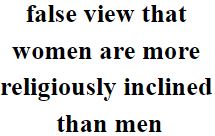“Keep us, O Lord, by Thy Word, And prevent the murder by Pope and Turk.”
[by Pastor Friedrich Lochner; cont'd from Part 7a]
Even in Protestant countries the papists dare to object to the singing of our hymn. Even when the separated Lutherans in Silesia [now in southwest Poland] continued to sing from their old Breslau hymnal: “And Prevent the Murder by Pope and Turk” [Und steur des Pabsts und Türken Mord] the latter, however, knew how to assert their good right manfully and skillfully.
However, the Spanish envoy once experienced a fine dispatch. After the death of Emperor Charles V in 1558, when he came to the court of the Lutheran Duke Ernst of Brunswick on business and went to church with him to please him, he heard our hymn sung once and again, much to his chagrin. However, when he finally complained to the Duke about the singing of this hymn, the Duke replied:
“My preacher is not appointed that I tell him what he should preach and sing, but he is appointed to tell me and all my people from his word in God's stead what we should believe and do so that we may be saved; we should hear him and follow him as God and Christ himself, Matt. 10. and Luke 10. Therefore I do not know how to forbid him to sing this hymn; if you do not want to hear it, stay out of church or go home.”
Unfortunately, in many cases the example of this pious prince was not followed, but here too, for political reasons, papist impertinence was bowed to by changing the words: “Murder of the Pope and the Turk”. This was already the case, for example, at the time of the Interim in the free imperial city of Nuremberg, this stronghold of the Reformation. When the city council encountered persistent opposition from its preachers and citizens with the introduction of the Interim, it tried it in 1549 with a new agenda, in which, however, various concessions were made to the papists. Among them was the following change of the first verse:
Keep us, O Lord, by Thy Word
And ward off Satan's cunning and murder,
That Jesus Christ, Thy Son,
Would have fallen from His throne.
But if such a change took place only three years after Luther's death, is it any wonder that later it was put more and more into the publication of national church hymnals and private collections. And when it had become general, in vain some hymnologists, such as Wackernagel, resolutely demanded the return to the original words.
Even hymnals that have recorded all the old hymns completely unchanged and whose editors have resolutely advocated the faithful rendering of the old hymns, of the hymns in general, such as Karl von Raumer, [see here] have nevertheless made changes at this point and put into its place either: “And prevent Satan's lies and murder” or: "And prevent thine enemies' murdering." [LC-MS/TLH 1941, #261: “Curb those who fain by craft and sword”]
Let us therefore thank God that our [Old (German) Missouri Synod] hymnal also contains this Reformation hymn completely unchanged! And so that, in these last sorrowful times (1) in which only a few still believe that the Pope is the real Antichrist, and (2) in which one [the LC-MS] has become even more gentle and considerate against this arch-enemy of Christ and His Church and against His shelter, may we sing all the more with right earnestness in our churches and schools: “And prevent the murder by Pope and Turk”, and here is the testimony of one of Luther's students from the year 1569.

.JPG)
.jpg)




.jpg)


blurred,%20cropped.jpg)


.jpg)
.jpg)


.jpg)
.jpg)